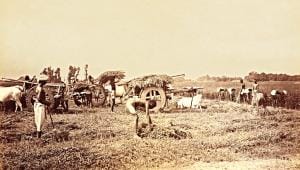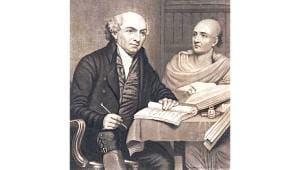Christian conversion and the politics of faith in colonial Bengal
While Europe experienced an age of evangelical awakening in the eighteenth century, political circumstances in India posed challenges to the work of missionary preaching.
18 August 2025, 13:22 PM
The Baropakhya Christians: A forgotten incidence of peasant repression in colonial Bengal
The Blue or Indigo Mutiny of 1861, was an outpouring of anger by Indian peasants coerced into cultivating the unprofitable indigo crop by British planters.
21 April 2024, 18:00 PM
Syed Mujtaba Ali between Bengal and Afghanistan
We have to ask an important question about Mujtaba Ali's Kabul adventures - what did this experience mean to this young Bengali man?
10 September 2023, 18:00 PM
The missionaries and the evolution of the Bengali language
In his foreword to Bernard Cohn’s magisterial book Colonialism and its forms of knowledge, Nicholas Dirks commented that for the British, in India,
20 February 2023, 18:00 PM
Munshi Meherullah of Jessore and religious identity in 19th century Bengal
On 7 June 1907, a rural Bengali tailor, Meherullah, died of complications from pneumonia in a small village called Chatiantala, on the banks of the river Bhairab, in Jessore.
29 January 2023, 18:00 PM










